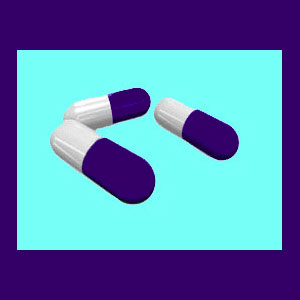
Over the counter pain relief is one of the most popular forms of back pain management. Patients with chronic pain often develop a habit of using OTC remedies multiple times daily, in order to cope with their symptomatic conditions. While OTC products might be effective for some forms of acute back pain, they are generally not advised as a long-term treatment option. This is because the chemicals in most of these drugs can accumulate in the body and do great damage to organs and blood, as well as cause other serious health concerns.
This essay provides an overview of OTC products that are commonly utilized to treat back ache that is caused by a variety of diagnostic conclusions.
OTC Pain Relief Products
Some of the most common brands in OTC back pain relief include Aleve, Advil and Tylenol. Occasional use of these products to help minimize the pain from muscular back ache or spinal arthritis is perfectly acceptable and even advised, when compared to prescription strength medications.
OTC products usually have fewer risks and side effects than prescription back pain drugs and are far more cost effective. Make sure you read the directions for any OTC product carefully and pay special attention if you are currently taking any other drugs or herbal supplements, since potentially dangerous interactions are always possible.
Over the Counter Pain Relief Indications
OTC pain medications are good for first aid in treating sudden muscular pain due to injury or overexertion. Daily use of OTC meds might be recommended by a physician to combat the stubborn aches and pains associated with osteoarthritis or confirmed facet joint syndrome.
OTC products are not likely to provide substantial benefits to patients with severe pain or symptoms caused by herniated discs& or other spinal abnormalities.
Always remember that OTC products do nothing to cure the problematic condition. They merely help alleviate the pain and always qualify as symptomatic treatment. Even if they work well today, you will need them again tomorrow or the pain will return with its original fury.
OTC Pain Relief Effectiveness
Pain relievers come in a wide range of formulas. Some patients experiment with a variety of products to find the one which works best for them. I am not a big advocate of OTC remedies, but do rely on them occasionally for temporary relief of headache. I particularly like Advil Liquid Gels and find these to be useful for all types of minor bodily pain. Unfortunately, being an NSAID, these can be dangerous for the digestive tract, increasing the risk of suffering gastric ulcer and bleeding.
Try to avoid developing a physical or psychological dependency on any substance, including OTC pain products. While OTC drugs are not physically addictive per se, they can still become habit forming and might cause health concerns if used long-term. Talk to your doctor about using OTC pain products wisely to maintain your health, not to deteriorate it.
I discuss a detailed analysis of OTC and prescription pain drugs in my acclaimed book The Pharmaceutical Trap. It can be found as part of our proprietary pain relief program.




